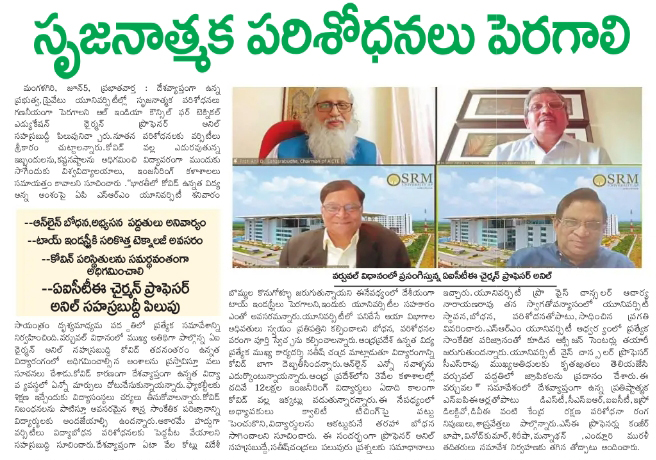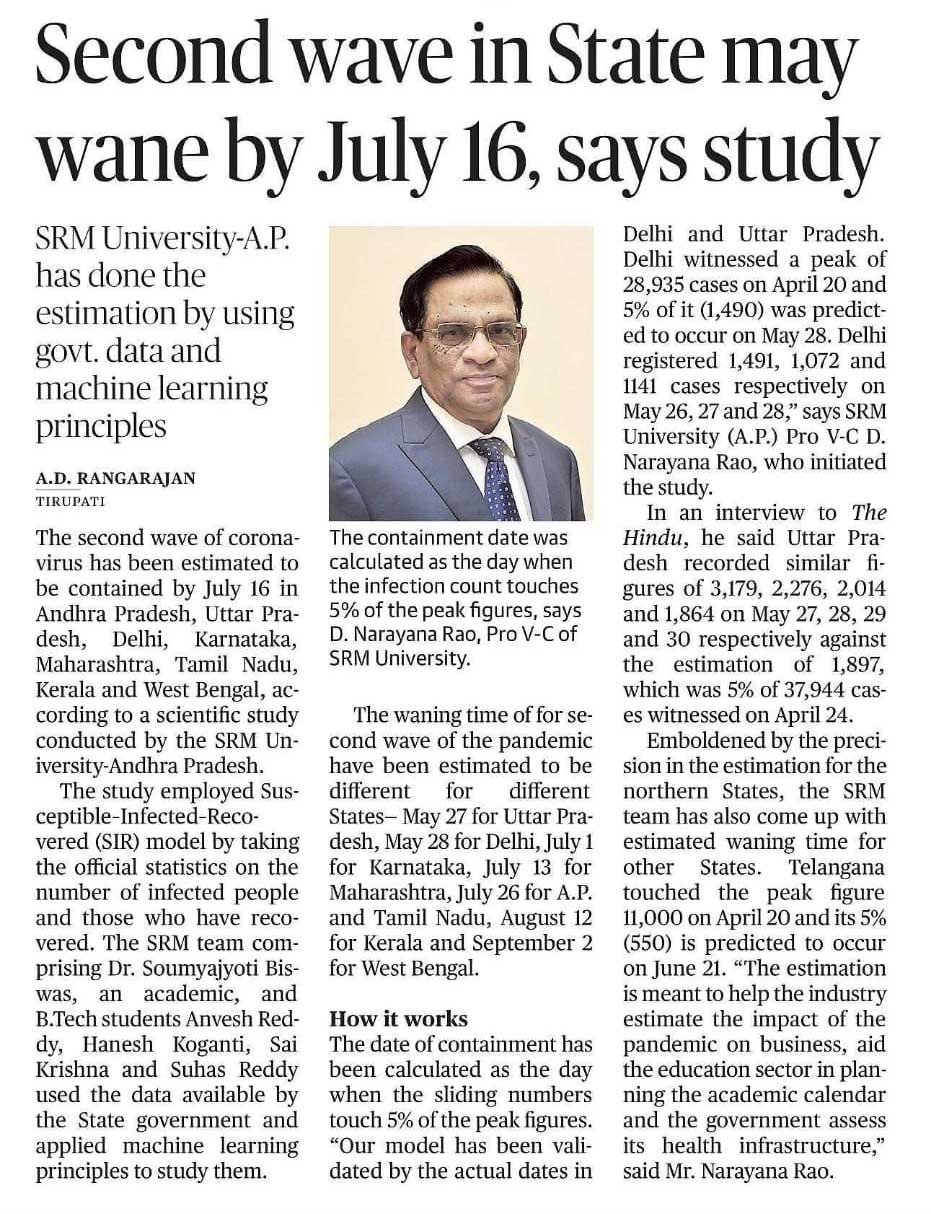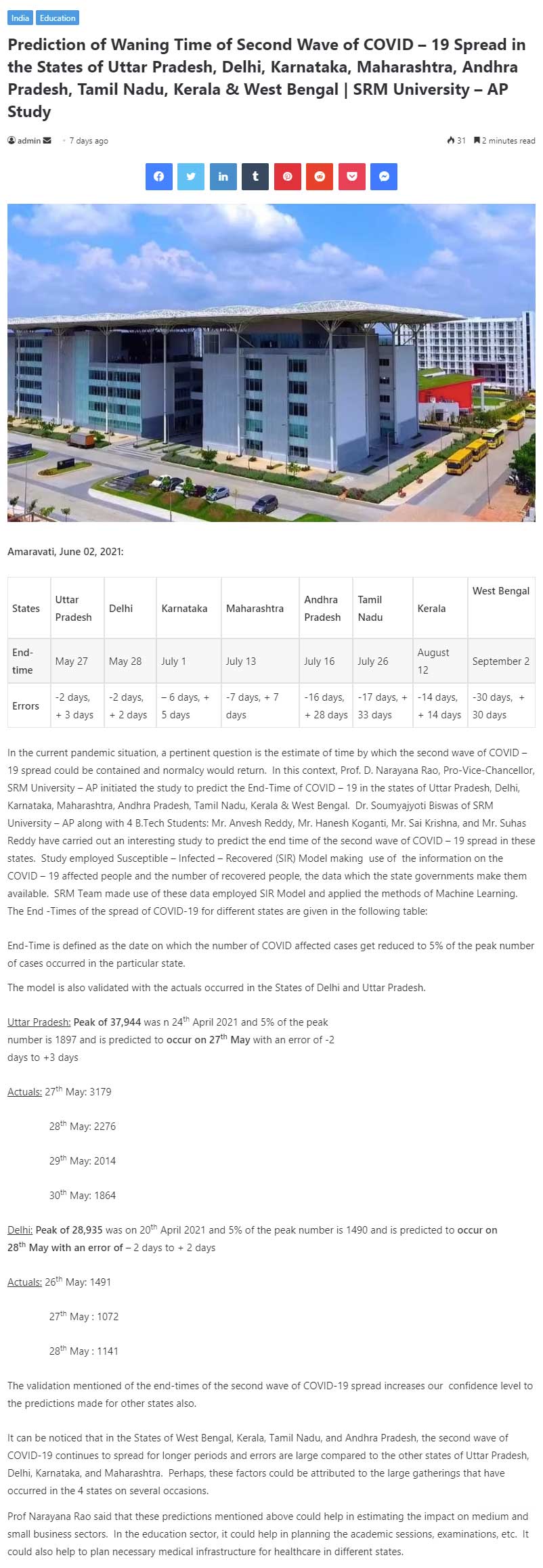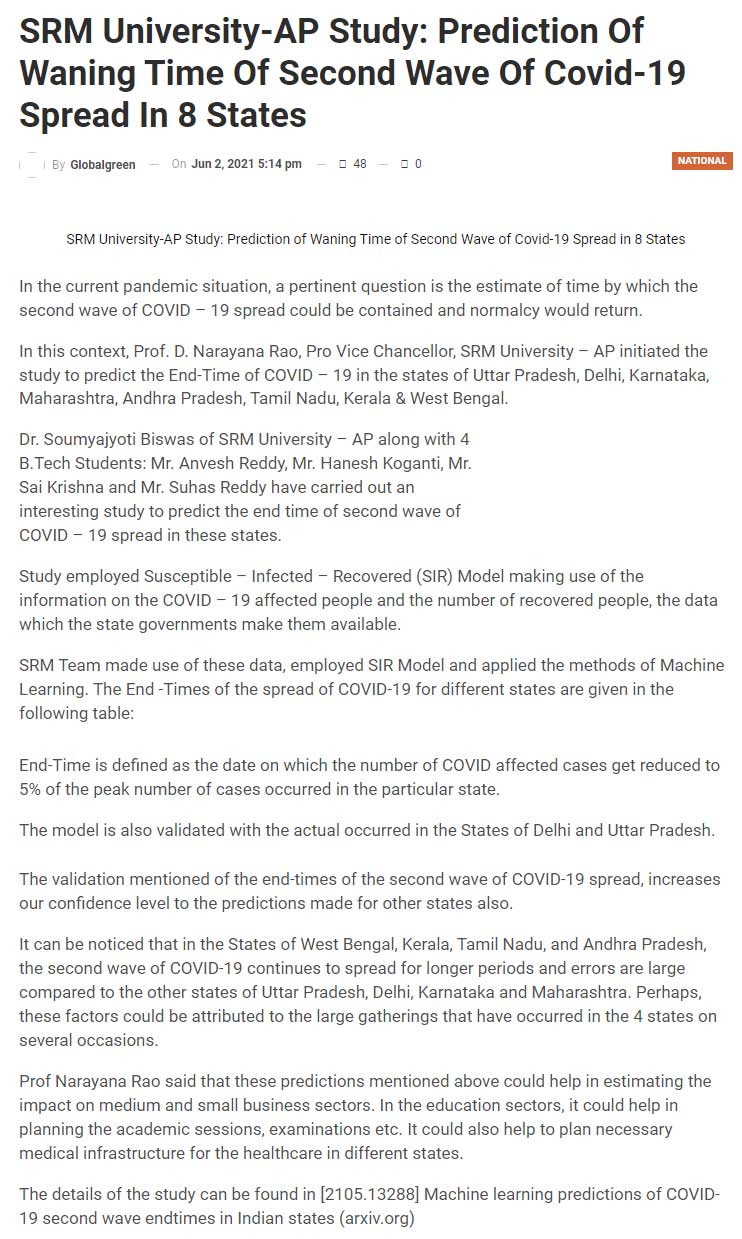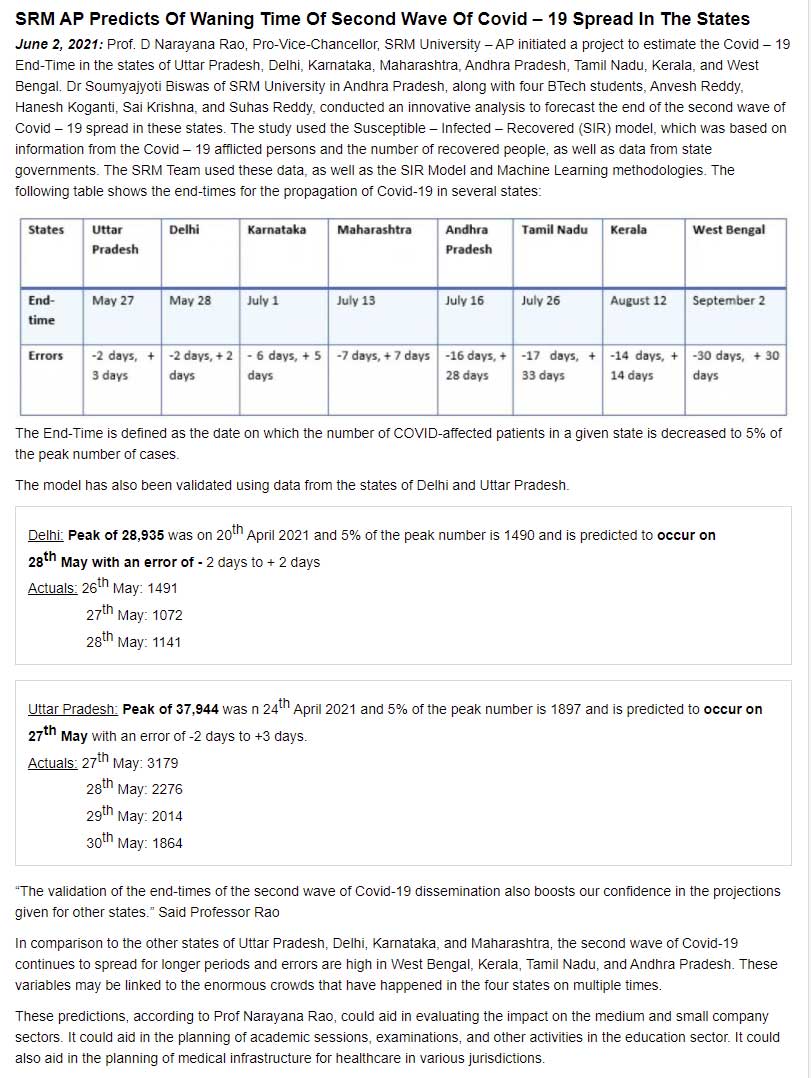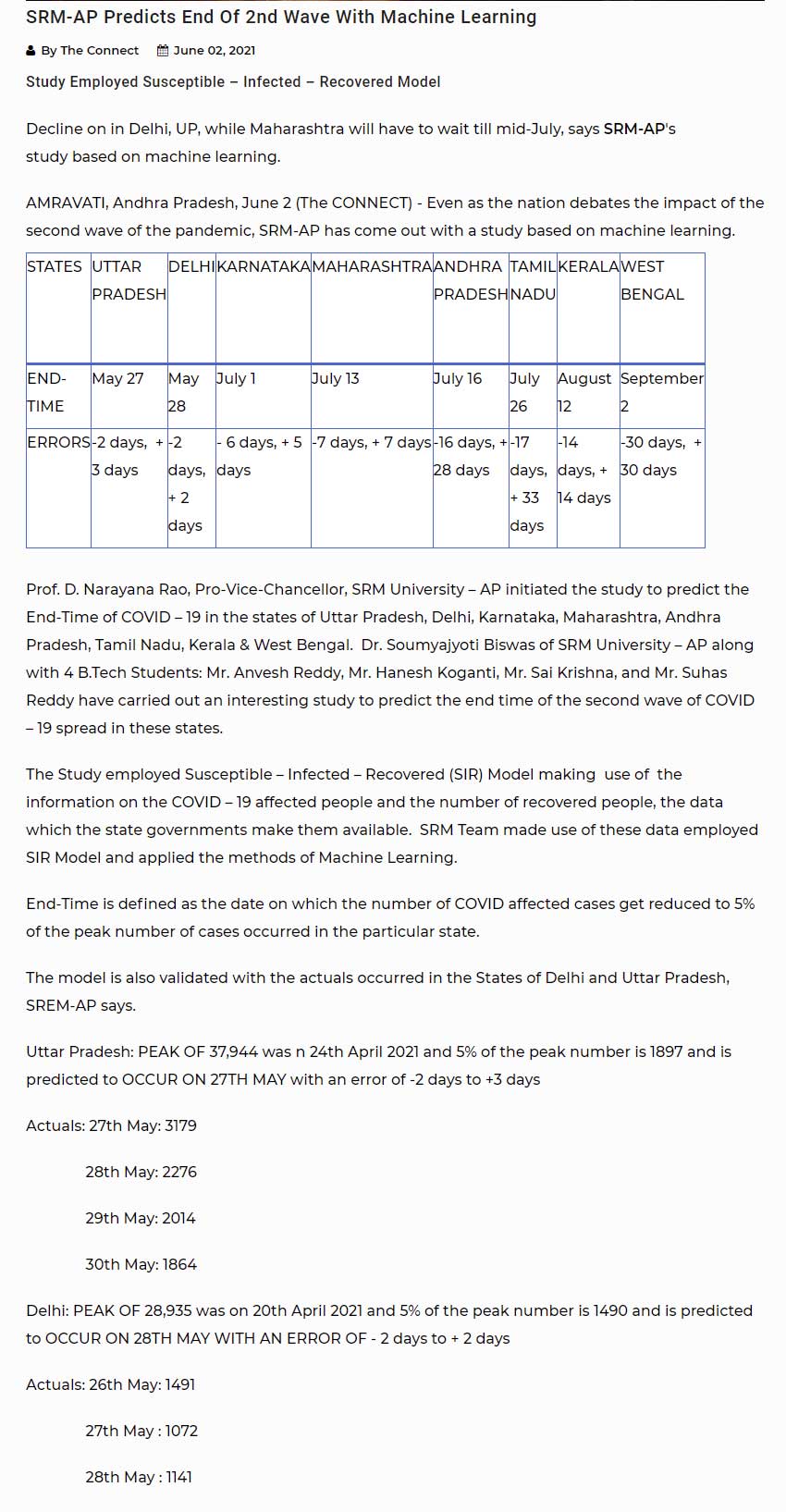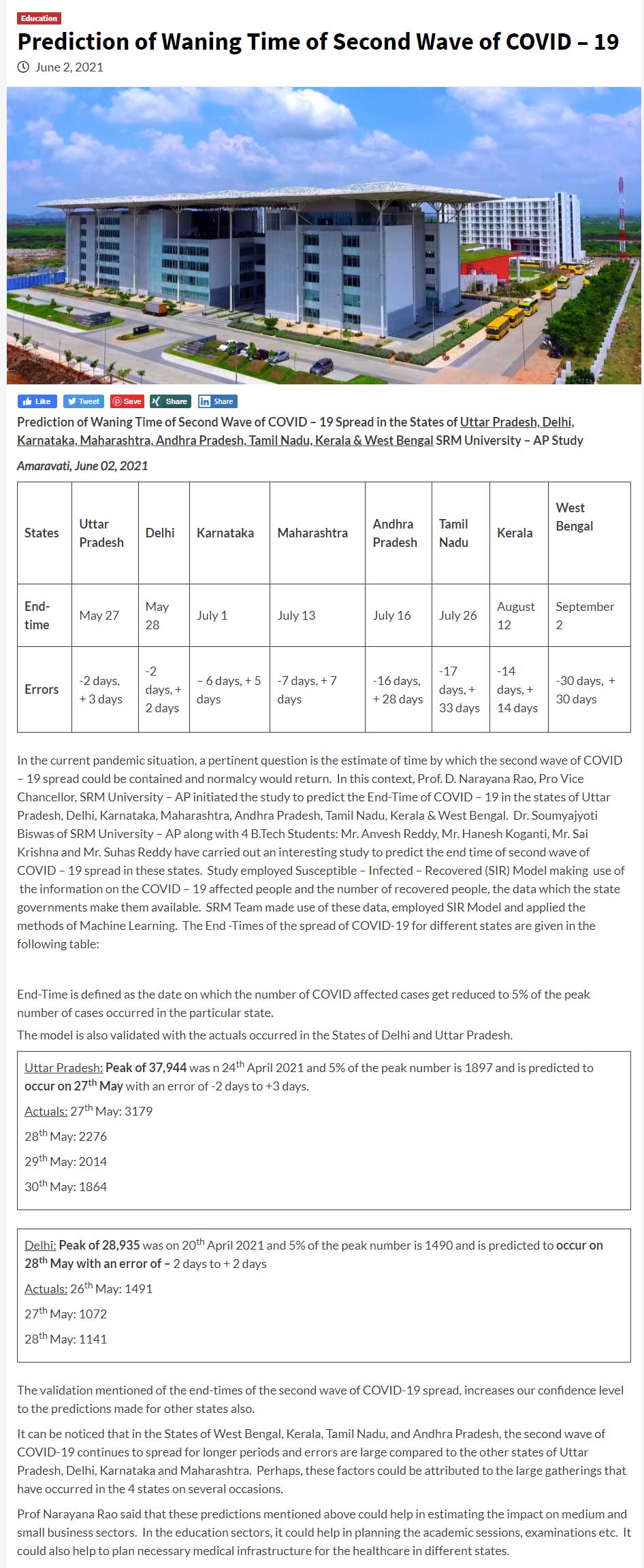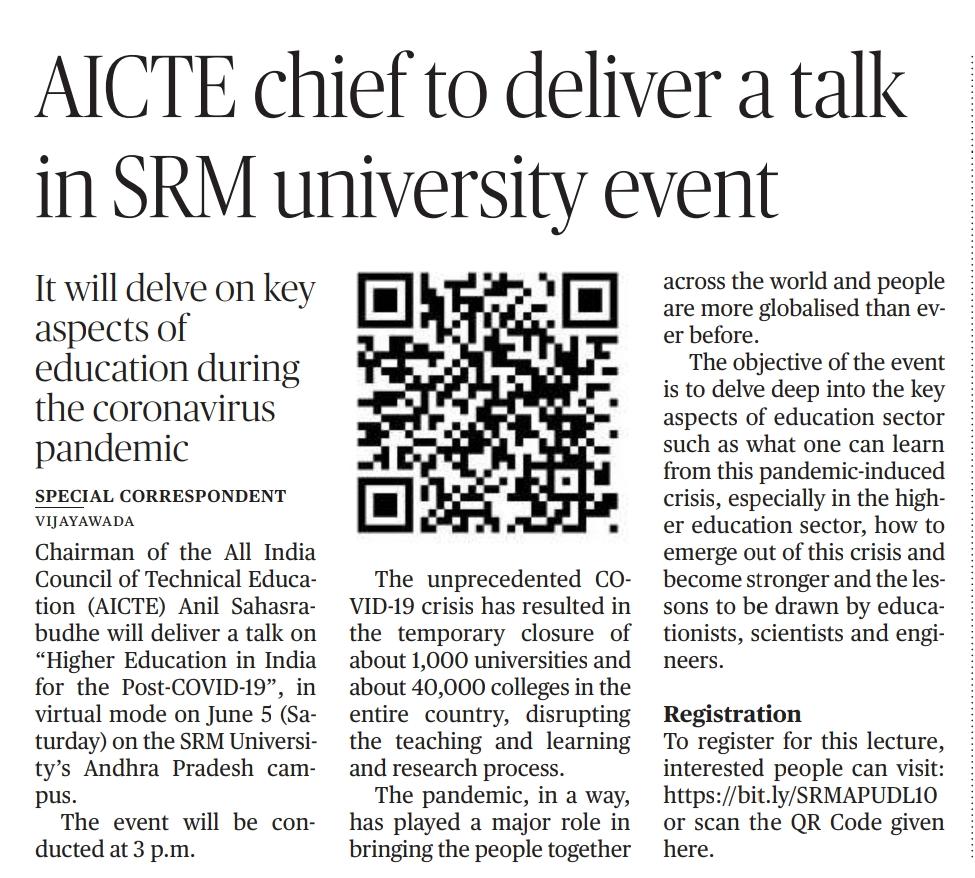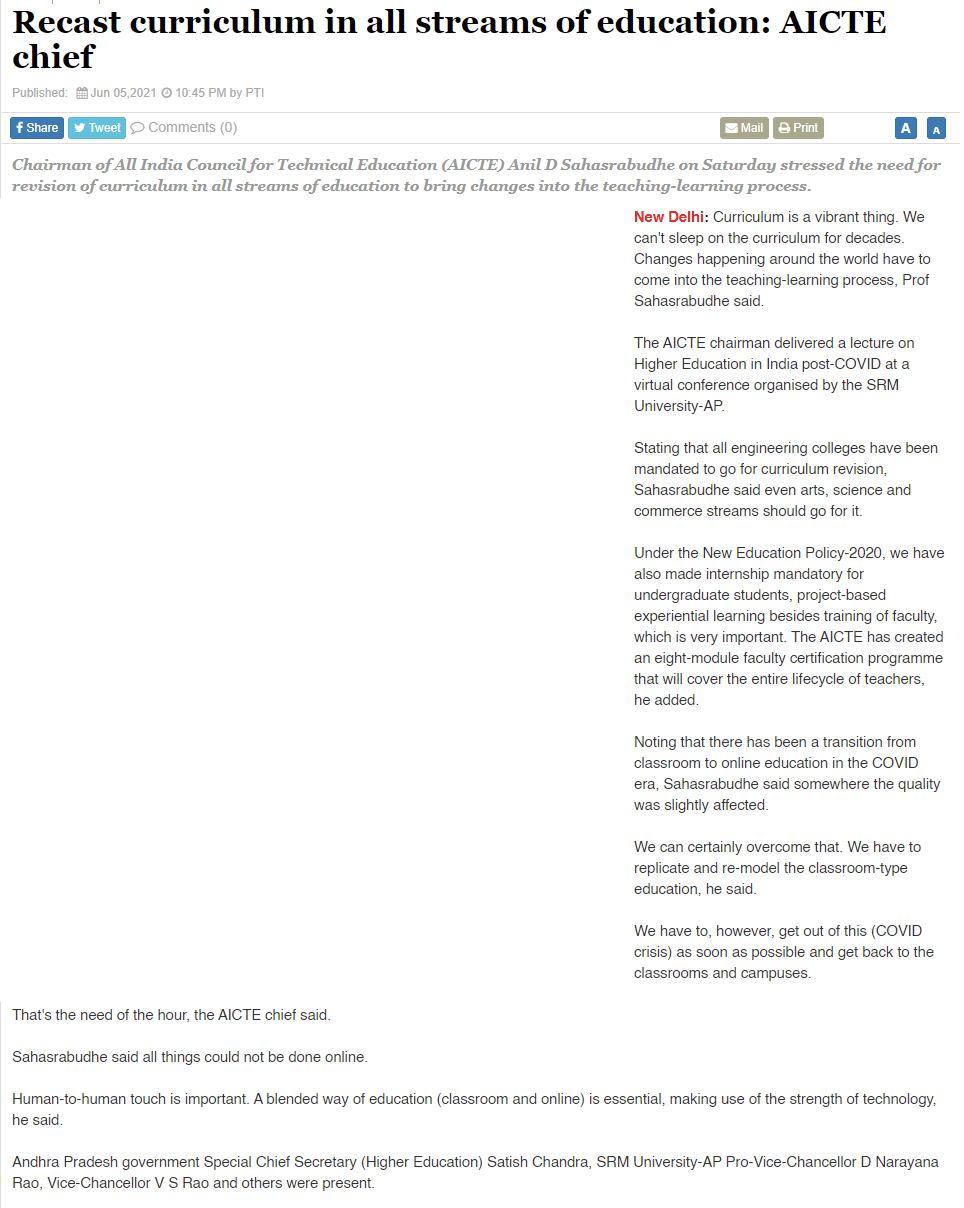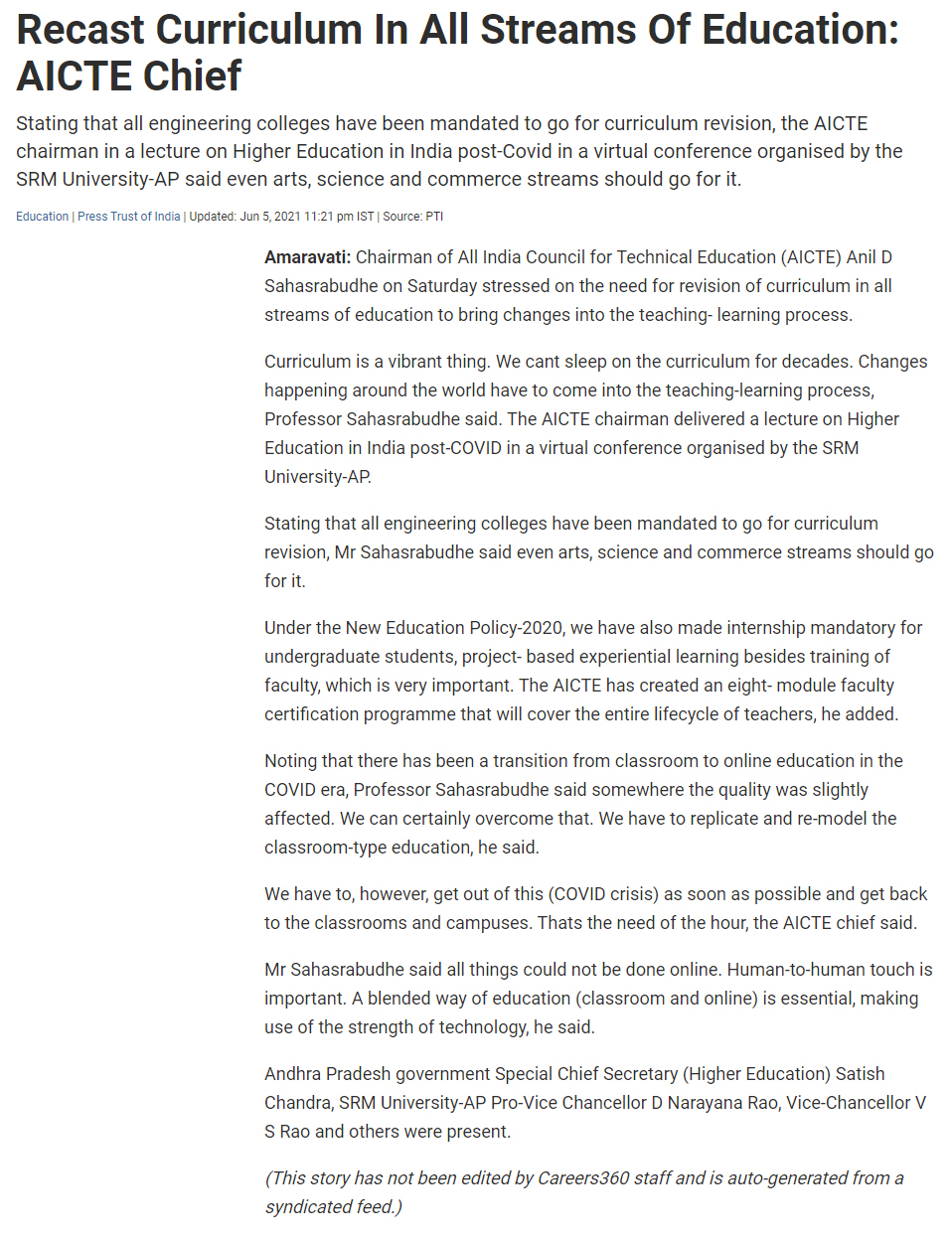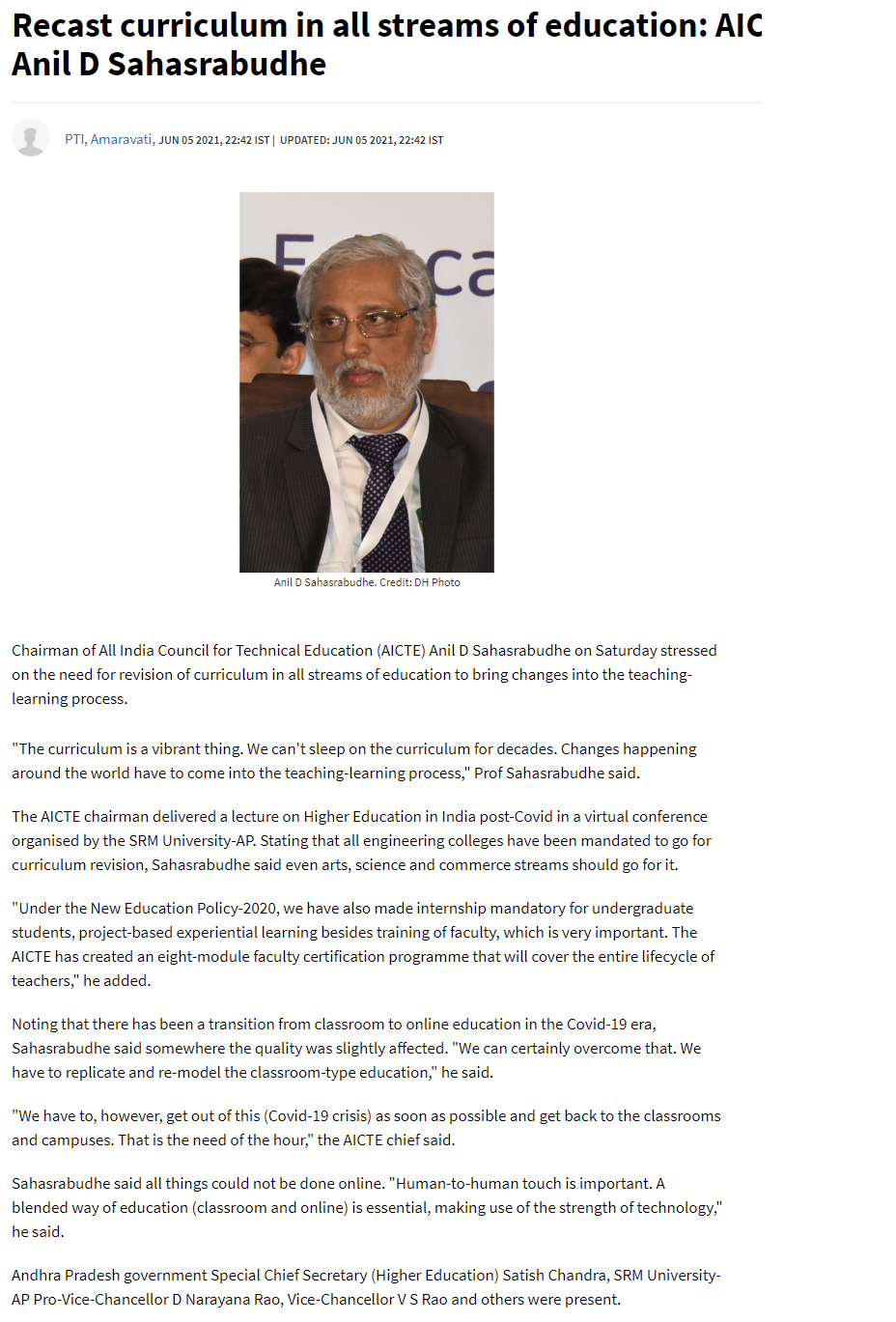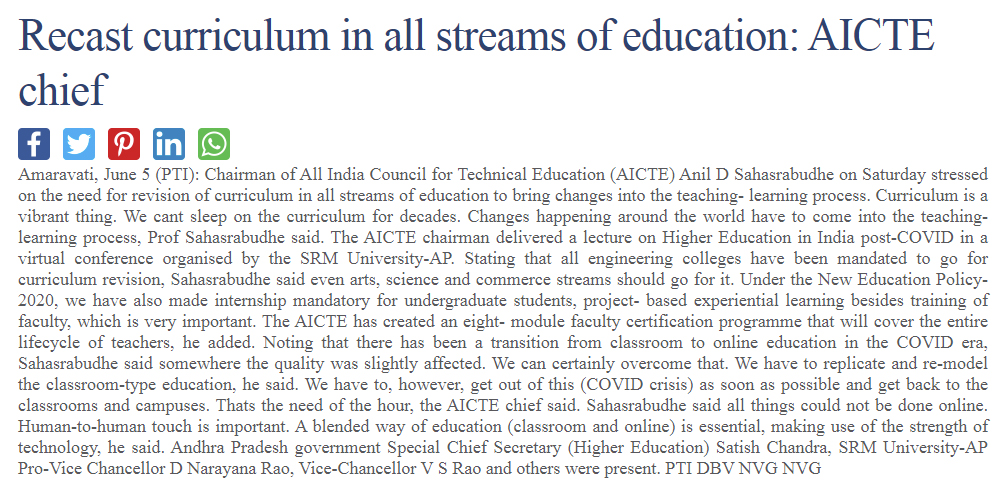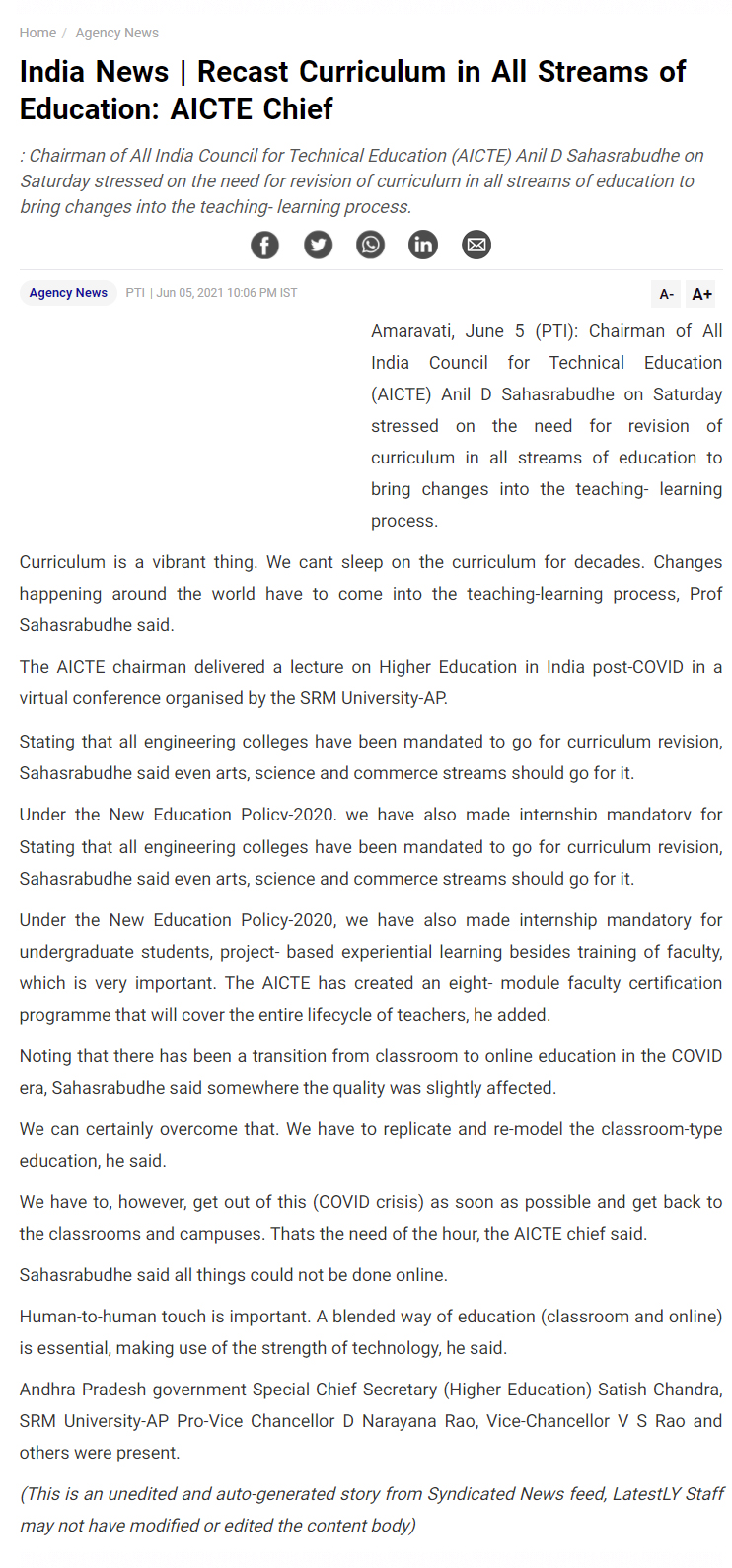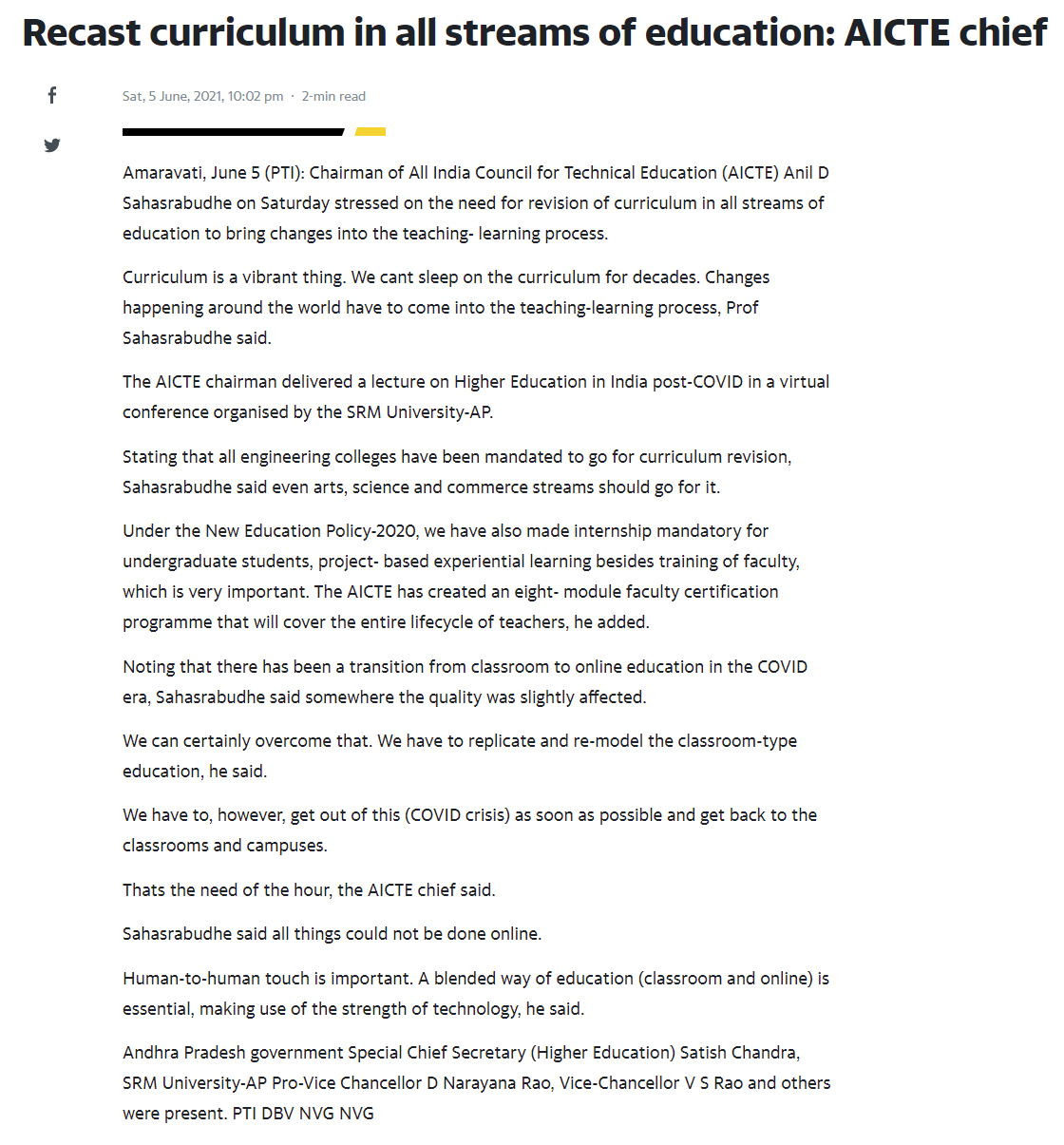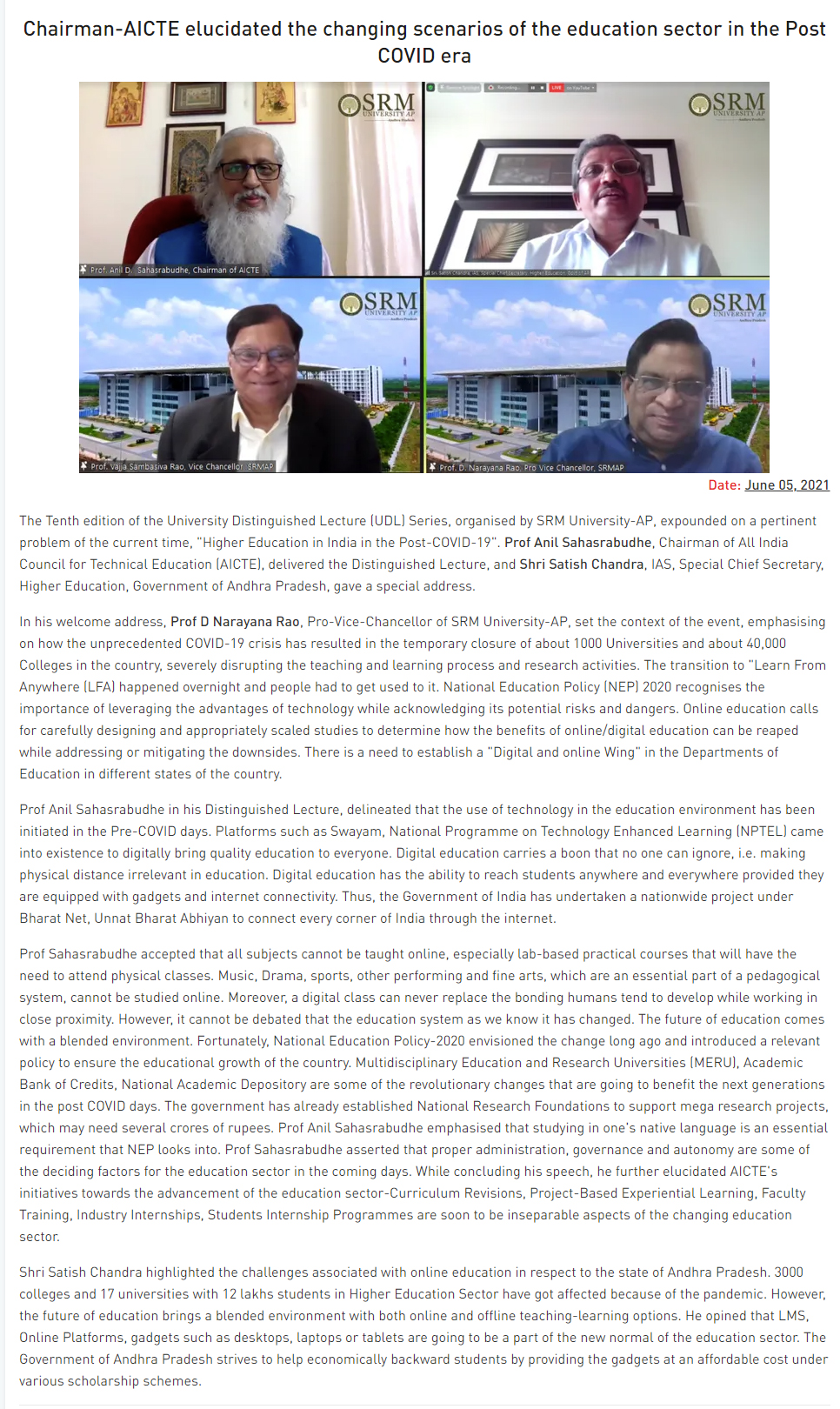- Prediction Of Waning Time Of Second Wave Of Covid-19 June 9, 2021
Business News This Week – June 2

Power Daily – June 5
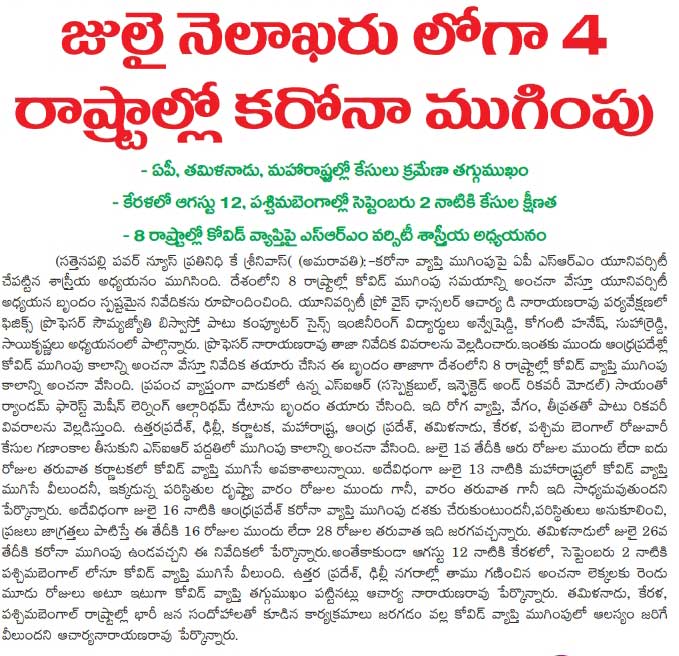
Eenadu – June 2
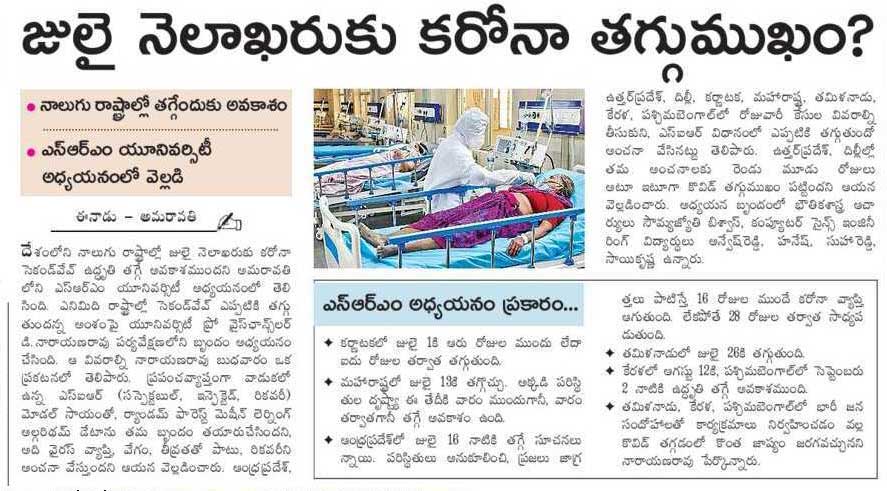
Andhra Prabha – June 3
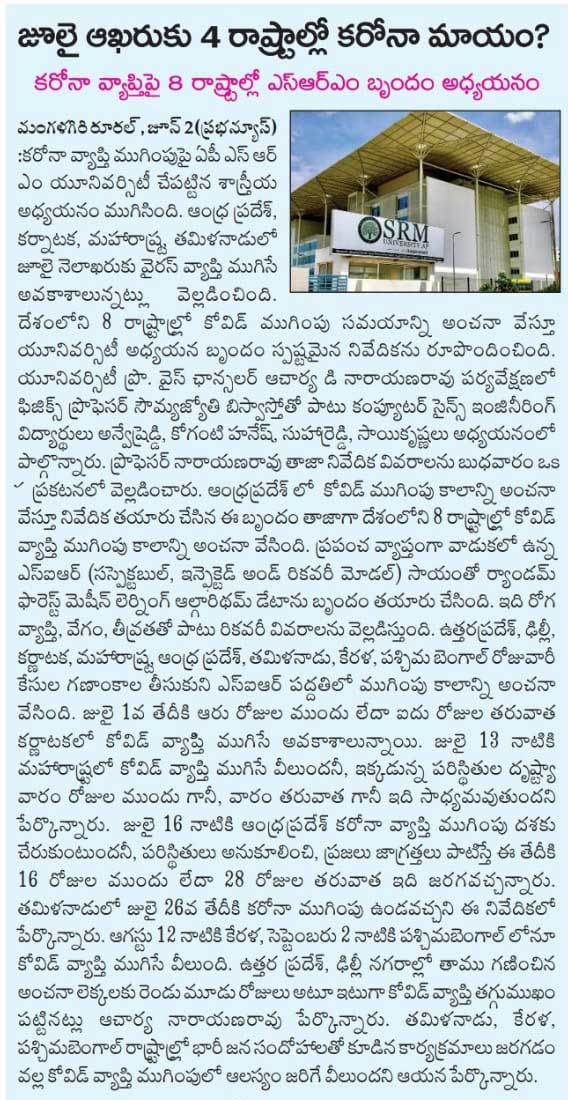
Vartha – June 2
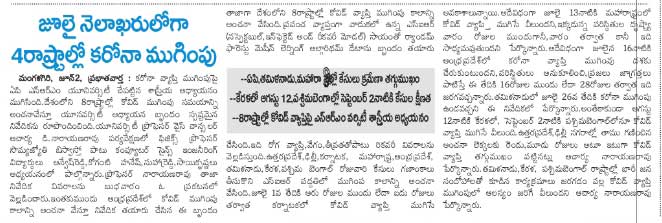
Surya Daily – June 3
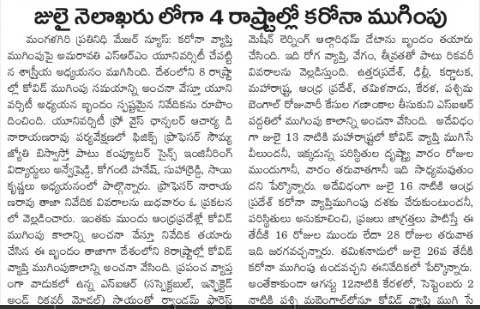
Vartha Prapancham – June 3
Continue reading →
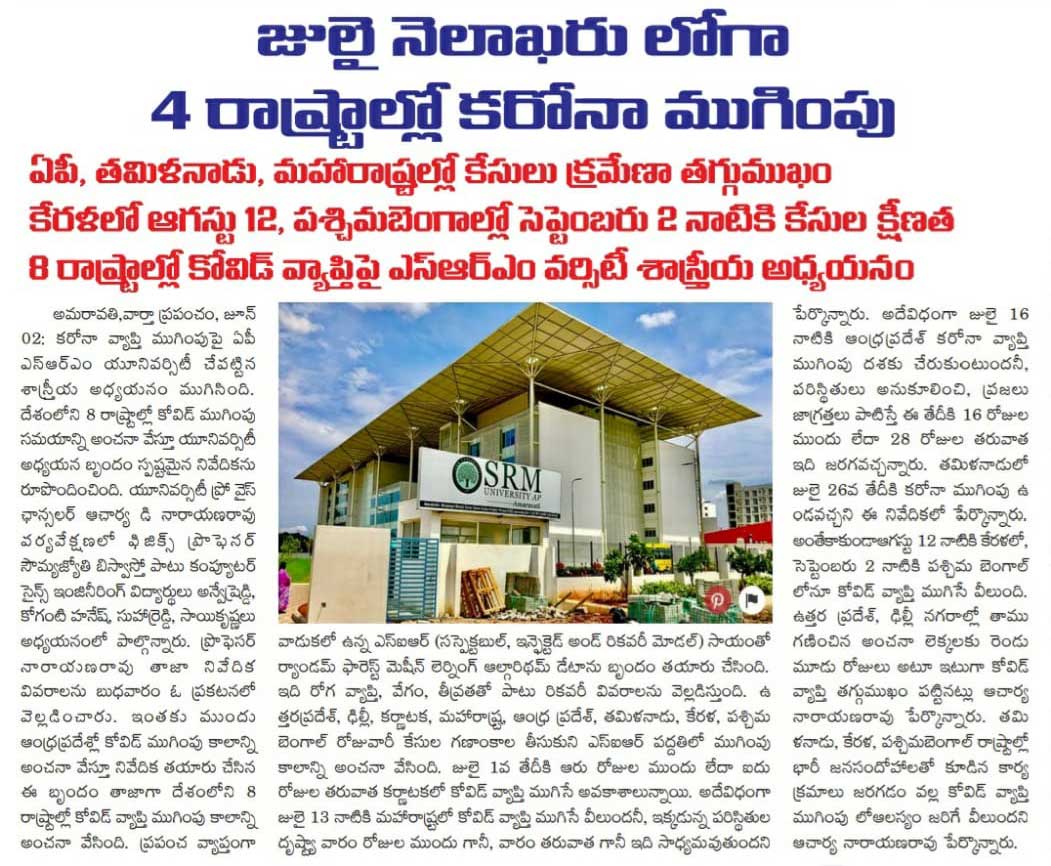
- Formulation of new designs and processing parameters for continuous hydrogen production June 9, 2021
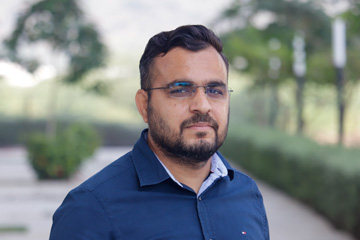 Dr Lakhveer Singh, Assistant Professor in the Department of Environmental Science, SRM University-AP, sets forth advanced avenues of scientific research on maintaining high current densities which is a key challenge in scaling-up microbial electrolysis cell (MEC) reactors.
Dr Lakhveer Singh, Assistant Professor in the Department of Environmental Science, SRM University-AP, sets forth advanced avenues of scientific research on maintaining high current densities which is a key challenge in scaling-up microbial electrolysis cell (MEC) reactors.“Scaling-up Up-flow Microbial Electrolysis Cells with a Compact Electrode Configuration for Continuous Hydrogen Production”, published in the Bioresource Technology journal is about a novel 10 L microbial electrolysis cell (MEC) reactor with a total electrode surface area greater than 1 m2 was designed and evaluated for hydrogen production. Performances of the reactor suggest that the longitudinal structure with the parallel vertical orientation of the electrodes encouraged high fluid mixing and the sheet metal electrode frames provided distributed electrical connection. A high volumetric H2 production rate of 5.9 L/L/d was achieved at a volumetric current density of 970 A/m3 (34 A/m2). The Impact factor of the journal is 7.53.
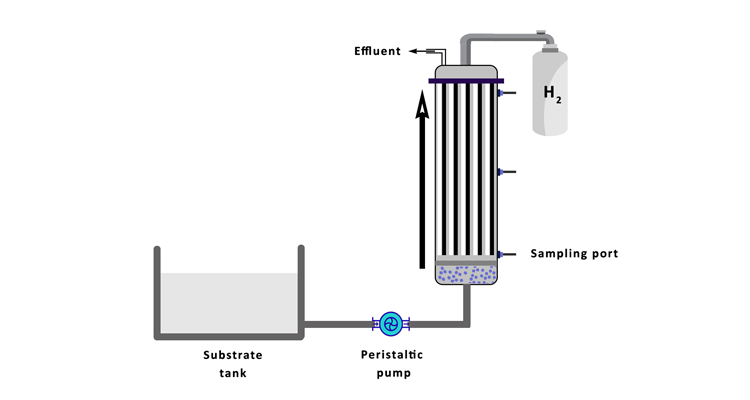 Dr Singh encapsulates that the technology and the model to be developed can be used to formulate new designs and processing parameters for producing H2 from other types of feedstocks and/or using engineered microbes developed by other researchers, which could solve the fuel problem for modern society. This work has been done in collaboration with Prof. Hong Liu from Oregon State University (OSU), USA.
Dr Singh encapsulates that the technology and the model to be developed can be used to formulate new designs and processing parameters for producing H2 from other types of feedstocks and/or using engineered microbes developed by other researchers, which could solve the fuel problem for modern society. This work has been done in collaboration with Prof. Hong Liu from Oregon State University (OSU), USA.Dr Singh is an Editorial Board member of the Journal of Biomass Conversion and Biorefinery – Springer (I.F. 2.60) and a Guest Editor for Bioresource Technology Reports- Elsevier. His future research targets to reduce the component costs and test the proposed design using real waste streams, as well as continue to increase the reactor volume.
Read the full paper here: https://doi.org/10.1016/j.biortech.2021.125030
Continue reading → - Prof C Durga Rao answers concerns regarding coronavirus third wave June 8, 2021
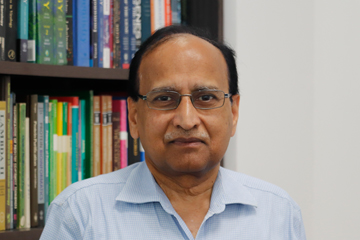 Eenadu newspaper has published an informative interview with Prof C Durga Rao, Professor of Biological Sciences & Associate Dean, School of Engineering and Sciences, and School of Liberal Arts and Social Science (SLASS), in their front page on the most relevant topic of our times, ‘Corona Virus and its Mutations’. As the world stays petrified awaiting further mutations of Covid-19 virus, Dr Rao clearly answered the pertinent questions regarding the waves of pandemic in this exclusive interview.
Eenadu newspaper has published an informative interview with Prof C Durga Rao, Professor of Biological Sciences & Associate Dean, School of Engineering and Sciences, and School of Liberal Arts and Social Science (SLASS), in their front page on the most relevant topic of our times, ‘Corona Virus and its Mutations’. As the world stays petrified awaiting further mutations of Covid-19 virus, Dr Rao clearly answered the pertinent questions regarding the waves of pandemic in this exclusive interview. Detailing from the process of cell division to the natural process of origin of mutations, he talked about the harmless viruses and the pathogenic viruses that influence the immune system of the human body. Moving on to the antiviral medication, he cautioned against Remdesivir, a drug widely used for Covid-19 treatment. Majority of antiviral drugs are similar to the nucleotides in viral RNA, and are called analogues. As the virus keeps an mutating naturally because of the error-prone viral RNA polymerase that synthesizes progeny viral RNA copies, when a drug is frequently given to a patient, mutants that are resistant to the drug will be selected to replicate in the presence of the drug. Thus, when the same drug is given to treat the new mutant that escapes, the drug will not work against the new variants.
The single mutations L452R and E484Q, first detected in variants in the US and South Africa, respectively, occurred simultaneously in the double mutant, first detected in India. There is nothing surprising in finding double mutants as a variety of mutants are produced in a single patient, but only a few, which are capable of faster replication and spread will be able to survive in the population. As we have a large population density, the double mutant, which binds to the ACE2 receptor on the cell surface and enters into the cell more efficiently, spread like wildfire from December last year to March this year. To face the potential threat of the third wave of Covid-19 virus that is looming around us, the people have to take necessary precautions and comply with the lockdowns and restrictions. Though a third wave is inevitable, it is possible for India to avoid the severe impact of the third wave through wearing a mask, and immunization, he said. Approval of more vaccines and enhancing the delivery of vaccines across the country can shield the population from severe coronavirus disease and death.
Dr Rao, whose major research areas include Molecular Virology, Recombinant DNA technology, Vaccines and Diagnostics had been a professor and INSA Senior Scientist at Indian Institute of Science (IISc). He is currently working on a project worth 1.10 crore.
Continue reading → - Dr. Niladri Sett June 8, 2021
- Chairman-AICTE elucidated the changing scenarios of the education sector in the Post COVID era June 8, 2021
The Hindu Vijayawada – June 05
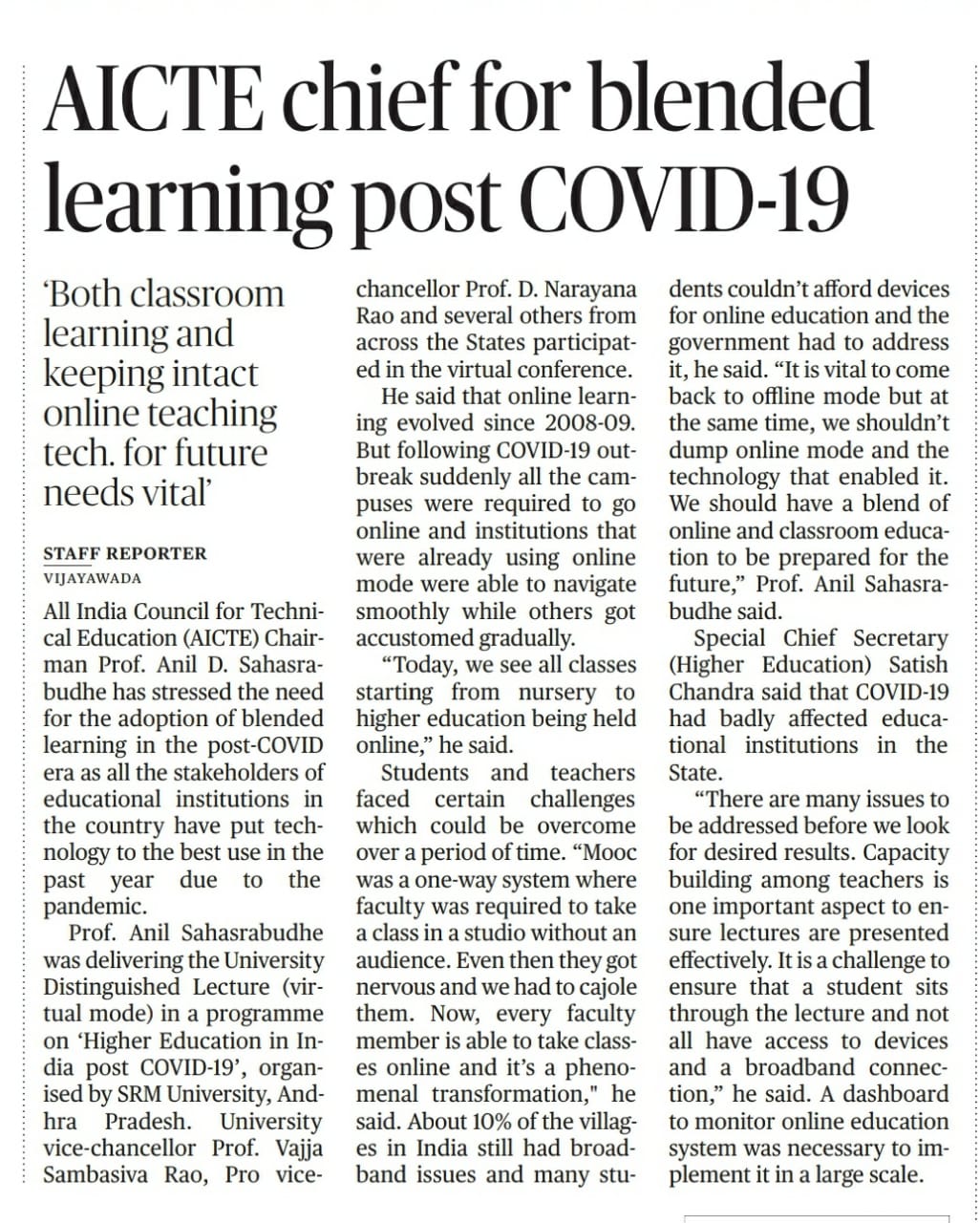
Deccan Chronicle – June 05
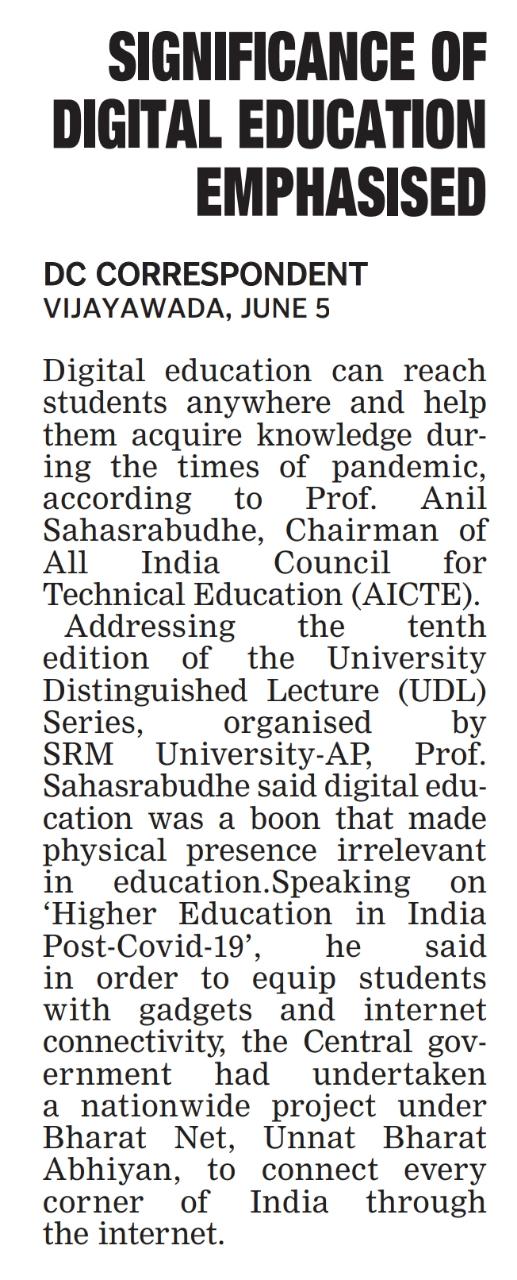
United News of India – June 05
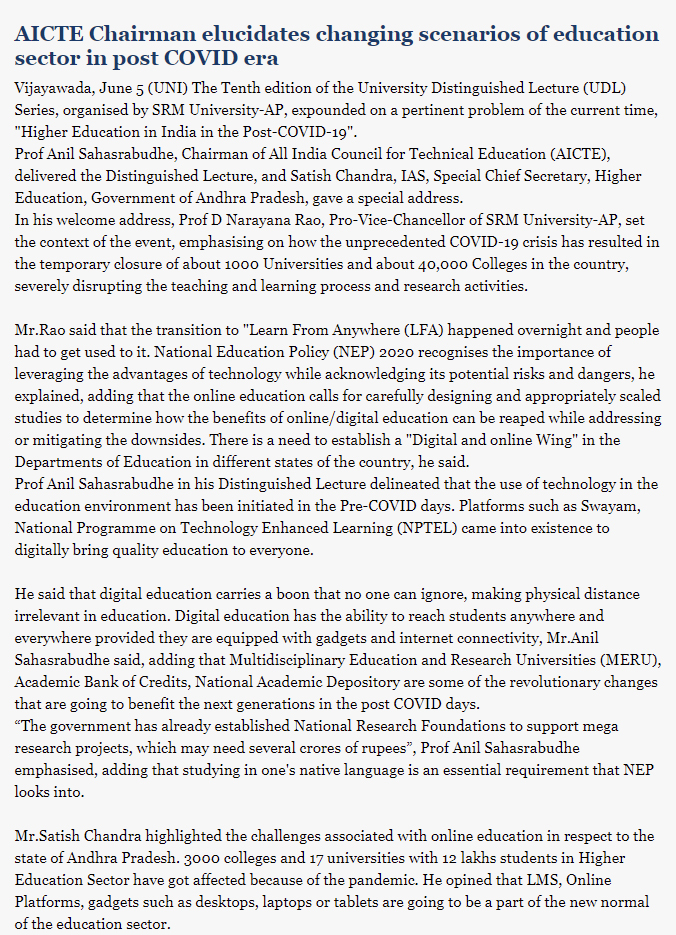
Business World Education – June 05
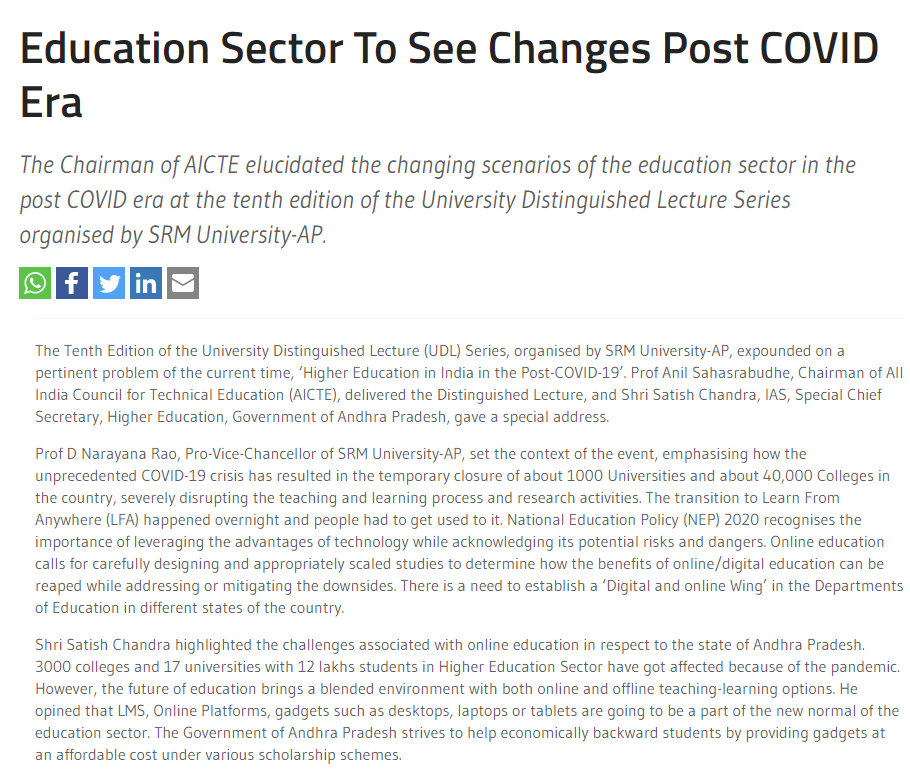
India Education Diary – June 05
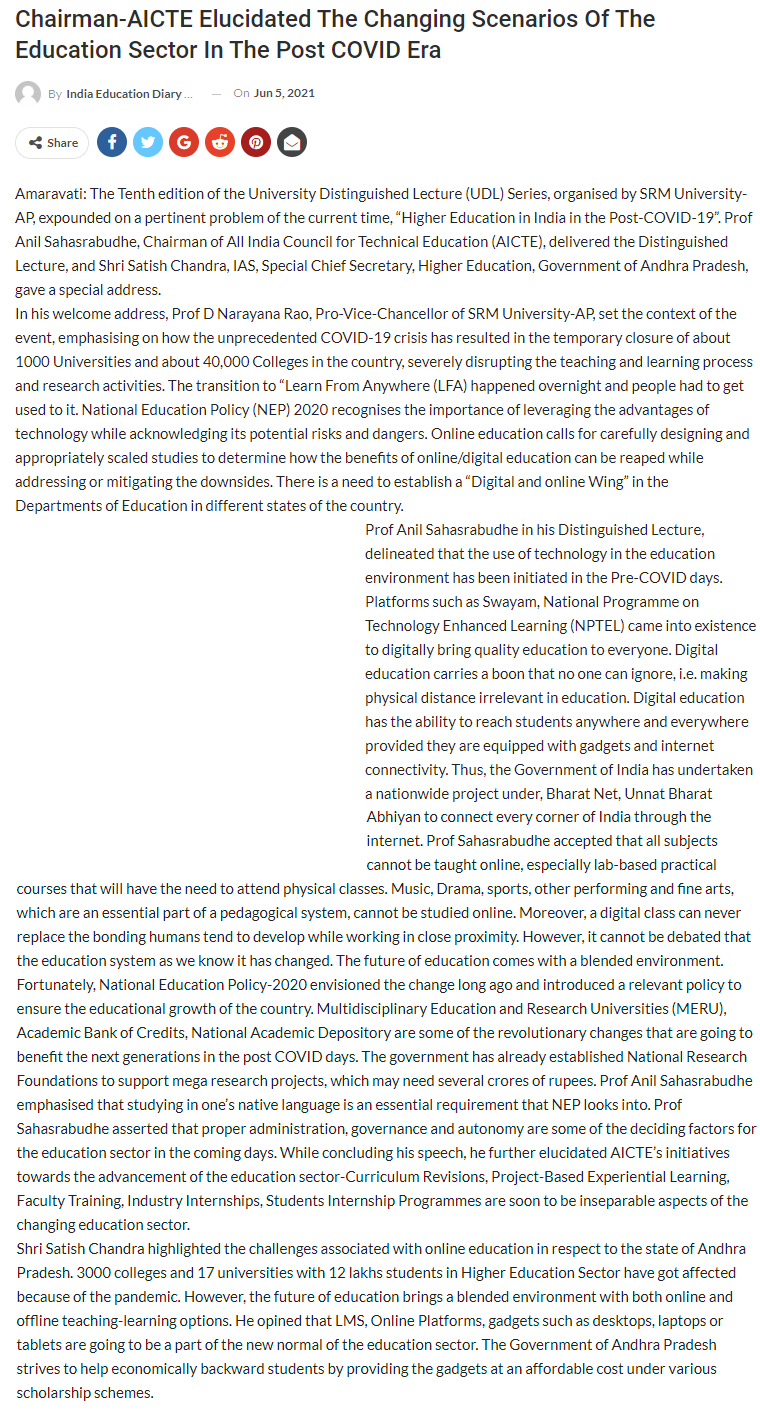
Daily Pioneer – June 05
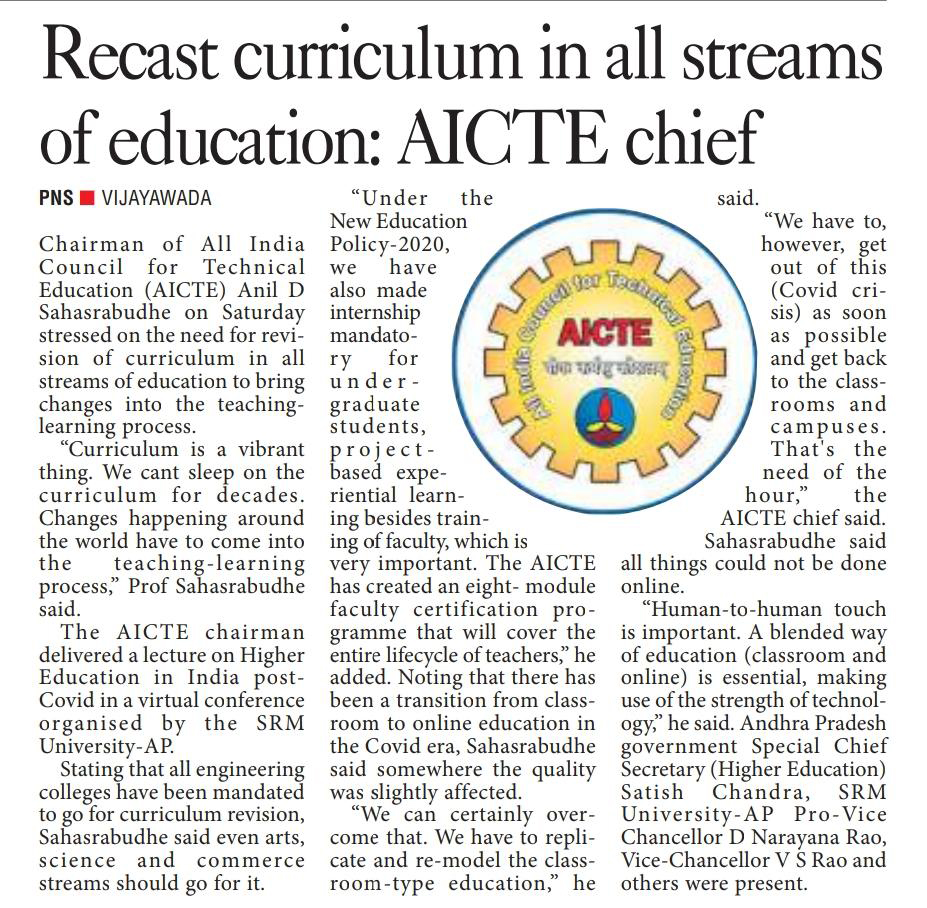
Eenadu – June 05
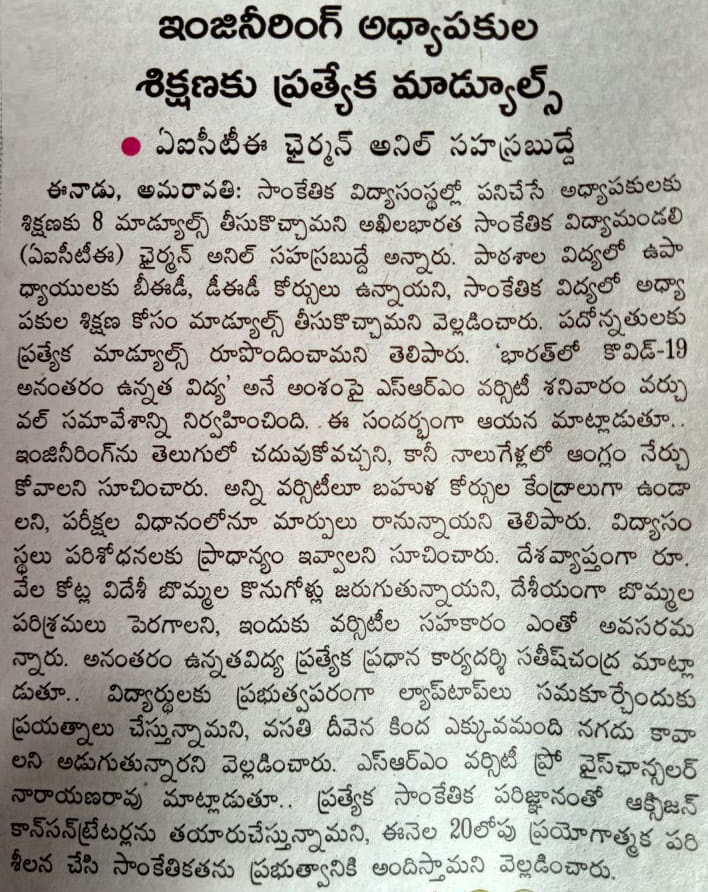
Sakshi – June 05
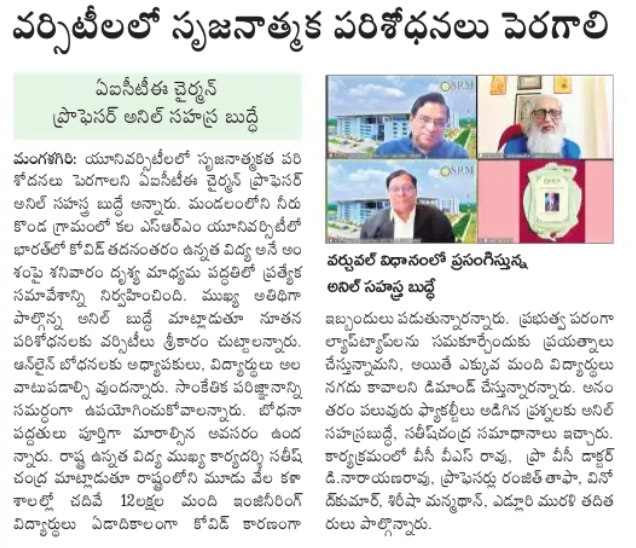
Surya – June 05
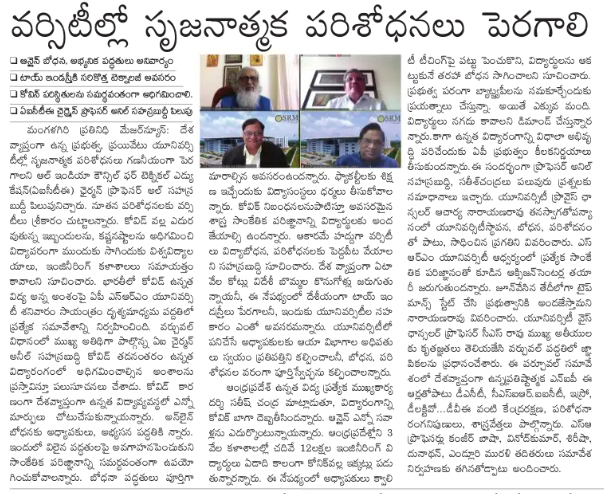
Vaartha – June 05
Continue reading →
